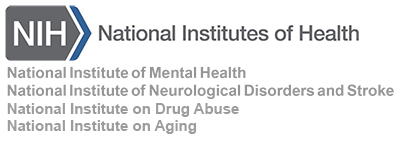The spectrum of kidney disease in patients with AIDS in the era of antiretroviral therapy
| Title | The spectrum of kidney disease in patients with AIDS in the era of antiretroviral therapy |
| Publication Type | Journal Article |
| Year of Publication | 2009 |
| Authors | Wyatt, CM, Morgello, S, Katz-Malamed, R, Wei, C, Klotman, ME, Klotman, PE, D'Agati, VD |
| Journal | Kidney International |
| Volume | 75 |
| Pagination | 428-434 |
| Date Published | 2009 |
| Keywords | Acquired Immunodeficiency Syndrome, Adult, AIDS-Associated Nephropathy, Anti-HIV Agents, Cohort Studies, External, Female, Glomerulonephritis, Humans, Kidney Diseases, Male, Middle Aged, Nephrosclerosis, Prospective Studies, Tissue Donors |
| Abstract | With prolonged survival and aging of the HIV-infected population in the era of antiretroviral therapy, biopsy series have found a broad spectrum of HIV-related and co-morbid kidney disease in these patients. Our study describes the variety of renal pathology found in a prospective cohort of antiretroviral-experienced patients (the Manhattan HIV Brain Bank) who had consented to postmortem organ donation. Nearly one-third of 89 kidney tissue donors had chronic kidney disease, and evidence of some renal pathology was found in 75. The most common diagnoses were arterionephrosclerosis, HIV-associated nephropathy and glomerulonephritis. Other diagnoses included pyelonephritis, interstitial nephritis, diabetic nephropathy, fungal infection and amyloidosis. Excluding 2 instances of acute tubular necrosis, slightly over one-third of the cases would have been predicted using current diagnostic criteria for chronic kidney disease. Based on semi-quantitative analysis of stored specimens, pre-mortem microalbuminuria testing could have identified an additional 12 cases. Future studies are needed to evaluate the cost-effectiveness of more sensitive methods for defining chronic kidney disease, in order to identify HIV-infected patients with early kidney disease who may benefit from antiretroviral therapy and other interventions known to delay disease progression and prevent complications. |
| URL | http://www.ncbi.nlm.nih.gov/pubmed/19052538 |

